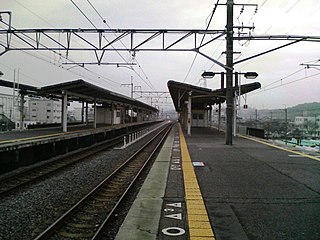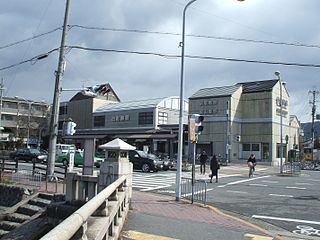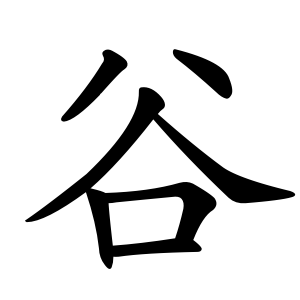A surname, family name, or last name is the portion of a personal name that indicates a person's family. Depending on the culture, all members of a family unit may have identical surnames or there may be variations based on the cultural rules.

A Korean name consists of a family name followed by a given name, as used by the Korean people in both South Korea and North Korea. In the Korean language, ireum or seongmyeong usually refers to the family name (seong) and given name together.
Japanese names in modern times usually consist of a family name (surname), followed by a given name. More than one given name is not generally used. Japanese names are usually written in kanji, which are characters usually Chinese in origin but Japanese in pronunciation. The kanji for a name may have a variety of possible Japanese pronunciations, hence parents might use hiragana or katakana when giving a birth name to their newborn child. Names written in hiragana or katakana are phonetic renderings, and so lack the visual meaning of names expressed in the logographic kanji.
A personal name or full name is the set of names by which an individual is known and that can be recited as a word-group, with the understanding that, taken together, they all relate to that one individual. In many cultures, the term is synonymous with the birth name or legal name of the individual. The academic study of personal names is called anthroponymy.

Tonami is a city in Toyama Prefecture, Japan. As of 31 March 2018, the city had an estimated population of 48,659 in 16,739 households and a population density of 384 persons per km². Its total area was 127.03 square kilometres (49.05 sq mi).

The Kamo River is located in Kyoto Prefecture, Japan. The riverbanks are popular walking spots for residents and tourists. In summer, restaurants open balconies looking out to the river. There are pathways running alongside the river on which one can walk along the river, and some stepping stones that cross the river. The water level of the river is usually relatively low; less than one meter in most places. During the rainy season, however, the pathways sometimes flood in their lower stretches.
In the Philippines, varying naming customs are observed, whether it is given name first, family name last, a mixture of native conventions with those of neighbouring territories, etc. The most common iteration amongst Filipinos is a blend of the older Spanish system and Anglo-American conventions, where there is a distinction between the "Christian name" from "surname". The construct of having several names in the middle name convention is common to all systems, but to have multiple "first" names and only one middle and last name is a result of the blending of American and Spanish naming customs. The Tagalog language is one of the few national languages in Asia to use the Western name order while formally uses the eastern name order. Thus, the Philippine naming custom is coincidentally identical to the Spanish and Portuguese name customs and to an extent Chinese naming customs.

Japan was the host nation for the 1964 Summer Olympics in Tokyo. 328 competitors, 270 men and 58 women, took part in 155 events in 21 sports.
The 1968 Winter Universiade, the V Winter Universiade, took place in Innsbruck, Austria.

Katata Station is a train station in Ōtsu, Shiga, Japan.

Demachiyanagi Station is a railway station located in Sakyō-ku, Kyoto, Kyoto Prefecture, Japan.

Tonami Station is a railway station on the Jōhana Line in city of Tonami, Toyama, Japan, operated by West Japan Railway Company.

Radical 150 meaning "valley" is 1 of 20 Kangxi radicals composed of 7 strokes.

Mangetsu-ji (満月寺) is a temple beside Lake Biwa in Ōtsu, Shiga Prefecture, Japan. The Heian period statue of Shō Kannon is an Important Cultural Property.
As Japanese citizens, people of the Amami Islands today only have family names and given names. They are known for many unique one-character surnames that date back to the Edo period. A survey on telephone directories of 2002 shows that 21.5% of the residents of the Amami Islands have one-character surnames. Famous people with one-character surnames include Atari (中) Kōsuke, Hajime (元) Chitose and Nobori (昇) Shomu.

Zenshō-an (全生庵) is a Buddhist Rinzai Zen temple, located in Taitō, Tokyo, Japan.
This page is based on this
Wikipedia article Text is available under the
CC BY-SA 4.0 license; additional terms may apply.
Images, videos and audio are available under their respective licenses.









